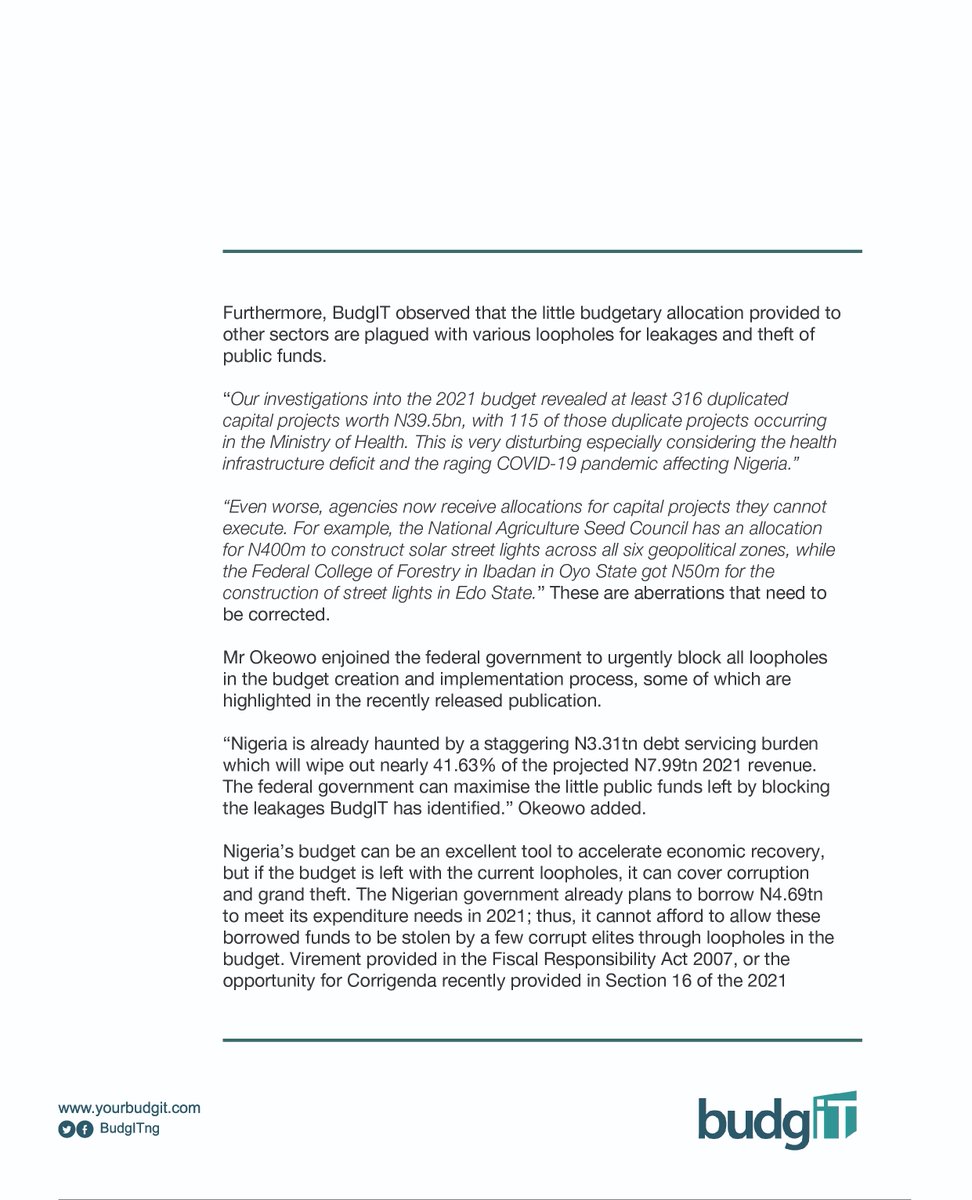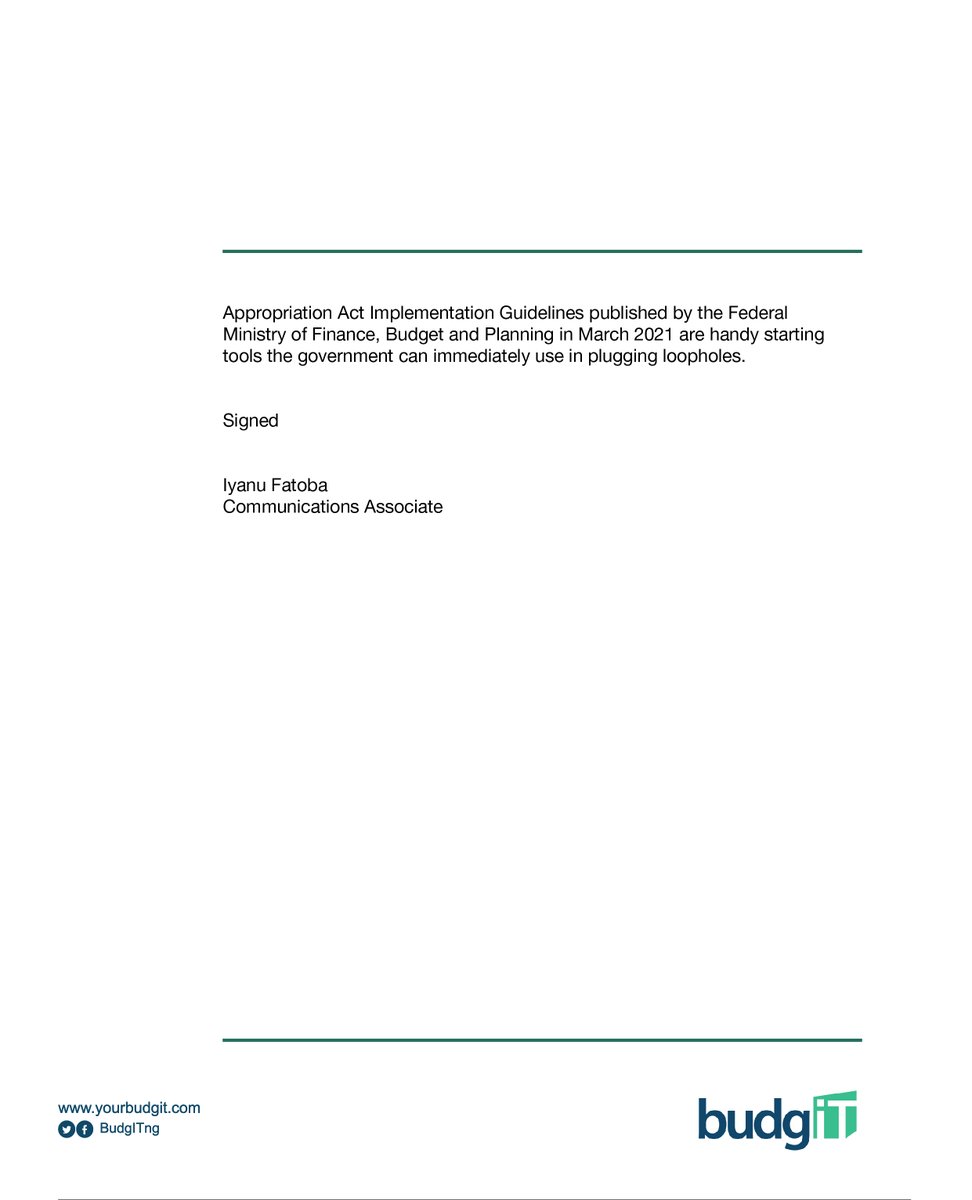
BREAKING
Our analysis of the #2021Budget reveals over 316 duplicated capital projects totalling N39.5bn, among other loopholes for corruption.
BudgIT also found ZERO audit records of the N10.02tn received by the security sector between 2015 & 2021.
Our press statement:
Thread!


Our analysis of the #2021Budget reveals over 316 duplicated capital projects totalling N39.5bn, among other loopholes for corruption.
BudgIT also found ZERO audit records of the N10.02tn received by the security sector between 2015 & 2021.
Our press statement:
Thread!



2021 has been a horrifying year for Nigerians concerning security – as the country combats mutating forms of crime and terror – across all its 36 states. This is despite allocating over N10.02tn to security between 2015 and 2021. #AskQuestions
In the 2021 budget, the entire security sector’s allocation was N1.97tn, representing a 14% increase from the N1.78tn allocated in 2020. #AskQuestions
Increased resources allocated to the security sector means that less money is available to develop other sectors; thus, there is a need for more scrutiny of how these allocations are budgeted and spent. #AskQuestions
Likewise, our publication (to be released later today), noted that various non-security related government agencies now request and receive allocations for “Security Votes”, an opaque feature of the Nigerian security ecosystem devoid of accountability.
In the 2021 budget, a total of 117 federal agencies received allocations for “Security Votes” worth N24.3bn, despite many of these agencies already having allocations for “Security Charges” to cover each agency’s security needs. #AskQuestions
Furthermore, BudgIT observed that the little budgetary allocation provided to other sectors are plagued with various loopholes for leakages and theft of public funds. #AskQuestions
Our investigations into the 2021 budget revealed at least 316 duplicated capital projects worth N39.5bn, with 115 of those duplicate projects occurring in the Ministry of Health. #AskQuestions
This is very disturbing especially considering the health infrastructure deficit and the raging COVID-19 pandemic affecting Nigeria. #AskQuestions
Even worse, agencies now receive allocations for capital projects they cannot execute. For example, the National Agriculture Seed Council has an allocation for N400m to construct solar street lights across all six geopolitical zones...
...while the Federal College of Forestry in Ibadan, Oyo State, got N50m for the construction of street lights in Edo State. These are aberrations that need to be corrected. #AskQuestions
Nigeria is already haunted by a staggering N3.31tn debt servicing burden which will wipe out nearly 41.63% of the projected N7.99tn 2021 revenue. @NigeriaGov and @nassnigeria can maximise the little public funds left by blocking the leakages BudgIT has identified. #AskQuestions
• • •
Missing some Tweet in this thread? You can try to
force a refresh






















